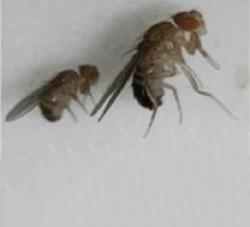
Our group studies how every individual can adapt to newly-forming challenging conditions prior to selection of beneficial responses. Specifically, we ask:
- How every cell and animal copes with stress that cannot be effectively alleviated by pre-existing adaptations
- Whether and how new adaptations can be acquired by semi-stochastic changes in the epigenome and microbiome
- How these changes might affect the germline
- How they can be inherited and progressively stabilized into longer-term, evolutionary adaptations
Previous findings led us to propose a theory of individual-specific adaptation (termed ‘Adaptive Improvisation’), which complements and generalizes natural selection by explaining adaptation on every timescale and level of organization (including ongoing acquisition of new adaptations in every individual). This concept also takes into account the induction of new variations (a neglected gap in Darwin’s theory) and provides a conceptual solution for the frequently invoked, but never really explained notion of adaptive plasticity.
Our current work focuses on experimental testing of the predictions of this concept and theoretical identification of the general (organizational) requirements of individual-specific adaptation.



